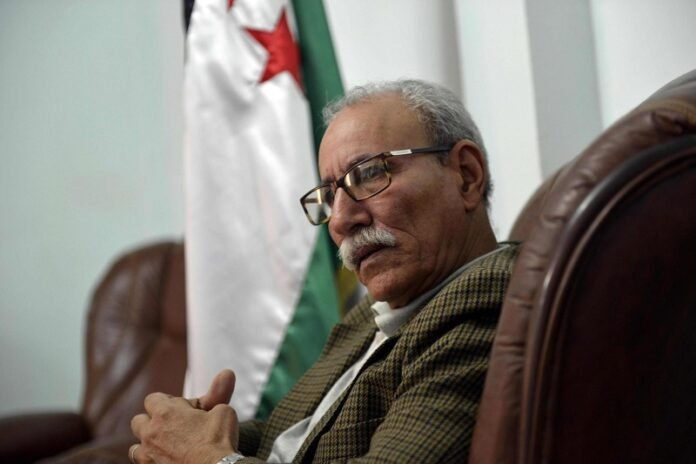In the corridors of the United Nations Security Council—where influence and diplomatic maneuvering unfold like moves on a global chessboard—the Polisario Front is once again attempting to play its old cards, trying to present itself as a capable interlocutor, even as the international reality firmly rejects the outdated idea of a classic referendum. The communiqué addressed to Secretary-General António Guterres comes at a critical time, coinciding with the U.S. draft resolution reaffirming that Morocco’s autonomy plan, proposed in 2007, remains the most serious and realistic framework for resolving the conflict—and that no other option is acceptable to the major powers.
The phrase used by the Polisario, “sharing the cost of peace,” purports to express a willingness to contribute to a settlement, but in reality, it is little more than a symbolic maneuver aimed at concealing the obsolescence of its demands—chief among them, self-determination through a referendum, which has long lost relevance on the international stage. The question arises: can such symbolic maneuvers truly alter the established balance of power? Can the Polisario convince the international community that the referendum remains a viable option when all major powers now endorse the realistic solution of autonomy under Moroccan sovereignty?
The communiqué, issued by the Polisario’s representative in New York, portrays the initiative as a “gesture of goodwill” and a “response to the Security Council’s resolutions.” Yet it merely recycles old claims, attempting to project an image of openness to dialogue. This symbolic maneuver places the Polisario on the defensive, amid the erosion of its traditional support and the growing recognition of Morocco’s position. Here, the reader must ask: can symbols and slogans mask the failure of an outdated self-determination model, or have time and the international order definitively settled the matter in favor of Moroccan autonomy?
From a diplomatic standpoint, the use of the phrase “sharing the cost of peace” reveals that the Polisario understands the real responsibility that peace entails. Peace is not a slogan or a press statement—it requires concrete action, mutual concessions, and binding commitments. Yet the Polisario’s move remains purely symbolic, while Morocco’s autonomy plan stands as the internationally endorsed solution, with the dominant power shaping the resolution of the issue now clearly and indisputably defined.
Recent developments confirm this trend. The United States has circulated a draft resolution reiterating that Moroccan autonomy is “the most serious and realistic basis for achieving a lasting political solution.” The draft calls on the parties to resume negotiations without preconditions, based on the Moroccan proposal, and extends the MINURSO mandate until January 2026, with regular monitoring by the Secretary-General. These measures reflect the strong international support for Morocco’s position and place the Polisario before a new challenge: to adapt to the emerging reality or face deeper marginalization.
Regionally, the separatist leadership is attempting to exploit moments of symbolic diplomacy to reduce its isolation, but it faces an undeniable truth: all major powers now recognize Moroccan autonomy as the only realistic solution, and any effort to revive the referendum path leads only to further political isolation. The reader may ponder: will the Polisario persist in recycling its outdated rhetoric, or will international pressure force it to confront the real solution?
Politically, the invocation of “sharing the cost of peace” is nothing more than an attempt to create an illusion of positive intent, while the reality is clear: the referendum option is dead, and autonomy remains the viable path forward. The contrast between symbolism and political reality raises an essential question: how can symbolism and politics intersect without becoming a mere illusion meant to deceive international opinion?
At the same time, the communiqué mentions the Polisario’s readiness for direct negotiations with Morocco “without preconditions,” seeking to present itself as a rational partner. Yet when compared to the position of the Security Council and the U.S. resolution, the contrast is stark: Morocco’s initiative remains the only realistic framework for a political settlement, while the Polisario clings to symbolic gestures to maintain political relevance despite its deepening isolation.
From a social and cultural perspective, this issue transcends geography and political borders—it is a battle for international legitimacy, for the movement’s identity, and for its ability to redefine itself as a responsible actor for peace rather than an isolated entity. Political culture intertwines with history: the Polisario continues to project itself as a defender of “self-determination,” while the great powers affirm that Moroccan sovereignty and autonomy are the paths to peace and stability.
Within the diplomatic framework, the role of the United States is central. Special envoy Steven Witkoff recently affirmed that agreements between Morocco and Algeria could be reached within 60 days, with clear U.S. support for Morocco’s sovereignty over the Sahara. These efforts demonstrate the international community’s determination to achieve a lasting political resolution, placing the Polisario to a test of realism and adaptability to the new geopolitical landscape.
Ultimately, the diplomatic landscape of the Moroccan Sahara resembles a complex chessboard, where every move carries both symbolic and strategic significance. The Polisario is trying to rewrite the rules, but the international community is imposing the facts: Moroccan autonomy is the realistic solution, and any attempt to revive the referendum only leads to further isolation.
Both readers and analysts are invited to reflect on these questions: can the symbolism of “sharing the cost of peace” mislead international observers, or will political reality prevail, making Moroccan autonomy under sovereignty an undeniable truth? The role of national media is also crucial—to expose such maneuvers and to reaffirm that the Moroccan Sahara remains non-negotiable.


